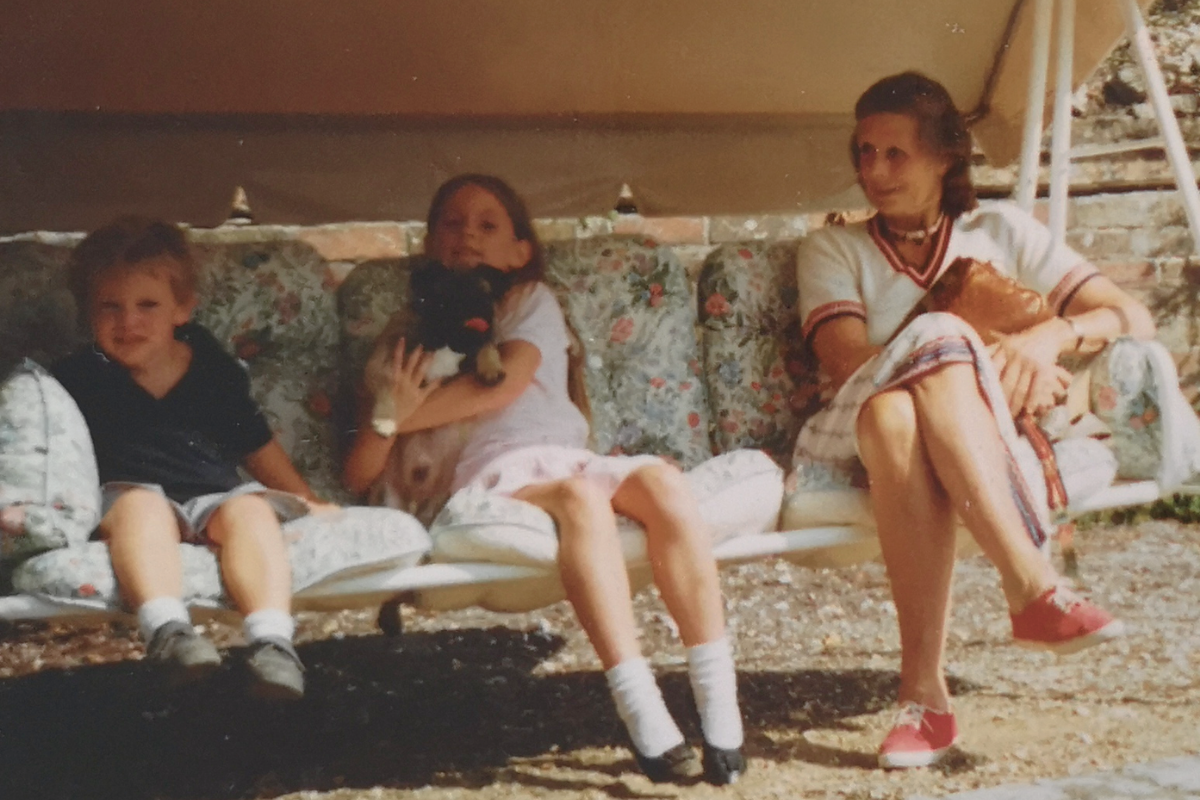
Granny and Laura
Her name was Elizabeth or "Libby" to most people. She was the most remarkable woman and a real character who I still miss terribly, despite her having sadly died with dementia in 2008.
Granny and her illness have inspired and driven every inch of my career in dementia research, from my PhD in Neuroscience to managing a passionate team of staff at the Brain Bank. The team are all trying to make a difference to those living with dementia and hoping for a world without it.
My Granny was a loving and consistent presence in mine and my brother's lives, in fact she lived with us for many years which meant that we were incredibly close to her.
Gran was a talented athlete having competed in her youth in the International University Games where she won Gold, Silver and Bronze medals in the high jump, shot, 80 metres hurdles and 4 x 100 metres relay! In fact, she would have gone on to represent the UK at the 1940 Olympic Games to be held in Helsinki, but the outbreak of war put paid to that. Instead, Gran drove an ATS ambulance during the war and went to Arnham to bring the British and Canadian dead out, experiences that stayed with her for the rest of her life. She was only actually awarded her International University Games medals decades later when they were found in a drawer somewhere in Whitehall, although she was delighted to receive them.
Gran and mine favourite shared past time, from a very early age, was backgammon. She taught me the game and we used to spend hours, days even, playing and gambling for pennies which all added up, but she always paid her debts, usually after endless rounds of "double or quits"! My parents would often wake to the rattle of dice at all times of the day and night. When we weren't locked in backgammon combat, we would discuss our love of horses and Gran would create incredible needlework pieces and tapestries while watching the rugby on TV. She also taught me to sew but I was never as capable a student as I'd hoped to be.
Gran attended the Royal School of Needlework and had a keen eye for art, capturing beautiful scenes in watercolour and rather naughtily sketching lots of naked men in pencil! She often talked fondly about working on the conservation of Queen Mary's coronation robes. Mary was George V's consort and also a keen stitcher and patron of the Royal School of Needlework.
In her later years, Granny would dog, and house sit all over Dorset. She was frequently seen out riding her old blue Raleigh bicycle, prodding bonfires with sticks, whistling and wearing head scarves like Queen Elizabeth. I distinctly remember that she always carried a dried-out packet of Marlboro lights in her handbag but in truth barely smoked one a month and was mostly a teetotaller. Funny the things you recall!
Granny's dementia crept up on her gradually. The first real sign was when she "lost" her car in a car park but that was some years before she received a formal diagnosis. Unfortunately, she was then affected by numerous strokes and TIAs which caused further decline and great distress. With the endless support of my parents, she tried to remain at home, eventually needing carers multiple times a day but her dementia became more and more severe. Gran then moved to a care home in the village she was born in after which my dad visited her every single day as her cognition continued to decline. Oddly perhaps, the standout worst moment for me personally was one Christmas when Granny forgot how to play backgammon. We pulled out the familiar board, but she had forgotten how to set the "men" up and after a game where all she did was roll the dice we never played again.
When Gran eventually died at age 87 it was after a long illness of some 5-6 years, although the true timeframe is impossible to pin down. I felt somewhat ashamed at the time but I was so relieved that she didn't have to fight anymore, that she was no longer in pain and confused. She was such a strong, independent woman and although her carers did everything within their power to look after her with dignity, her quality of life had been very poor in her later years.
In the hope of making a difference to others affect by the disease, our family asked for donations to be made to BRACE at her funeral instead of flowers and although not a natural athlete, I ran Bath half marathon with sponsorship going to BRACE only weeks before she died as a dedication to her. My brother Simon also ran for BRACE some years later and we were most grateful to have had the opportunity to add Gran's name to the BRACE book of remembrance which still brings some comfort when I think of it and her.
Share this page
